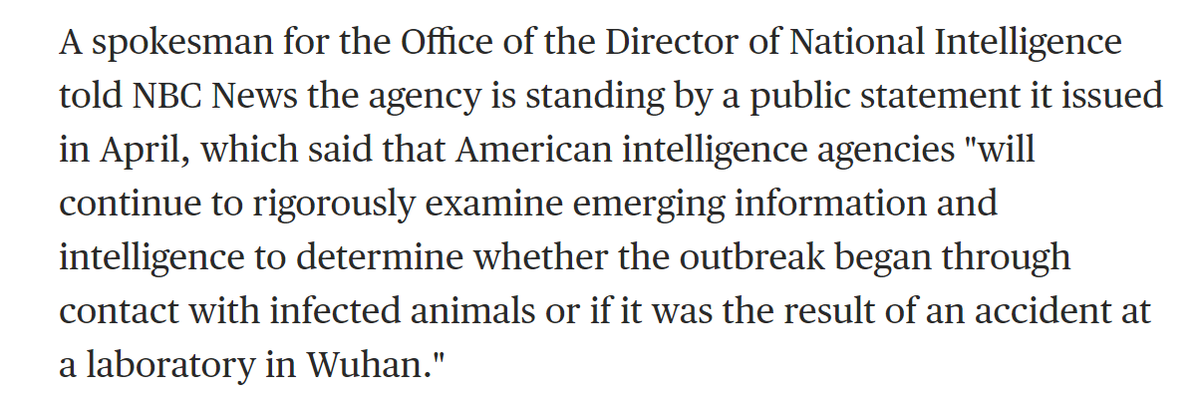
Really good piece in @NBCNews by @KenDilanianNBC et al.
Questions about how large the covid outbreak was in Wuhan, how early it could’ve started, maybe even Sep 2019 if there were already dozens of unconnected cases in October.. nbcnews.com/health/health-…
Questions about how large the covid outbreak was in Wuhan, how early it could’ve started, maybe even Sep 2019 if there were already dozens of unconnected cases in October.. nbcnews.com/health/health-…
Extremely challenging to answer these questions without access to thousands of banked patient samples from Wuhan from fall 2019, and the actual non-aggregated patient records from that time. Not just the 90+ shortlist but thousands of people with pneumonia in Wuhan fall 2019.
Office of Director of National Intelligence: agency "will continue to rigorously examine emerging information.. to determine whether the outbreak began through contact with infected animals or if it was the result of an accident at a laboratory in Wuhan" nbcnews.com/health/health-… 

According to the Mail on Sunday,
Matt Pottinger, the Deputy National Security Adviser who resigned in response to the insurrection, said "There is a growing body of evidence that the lab is likely the most credible source of the virus."
dailymail.co.uk/news/article-9…
Matt Pottinger, the Deputy National Security Adviser who resigned in response to the insurrection, said "There is a growing body of evidence that the lab is likely the most credible source of the virus."
dailymail.co.uk/news/article-9…

The story about intelligence is complicated by the facts sheet by the previous State Dept, which was described as "less than rock solid" although there is substantial & significant intelligence, raising enough circumstantial questions such that #laborigins are still on the table. 

Nonetheless, it is safe to say that #laborigins are plausible and not a conspiracy theory if several top experts, US intelligence, and 2 US administrations think that lab origins remain to be investigated - regardless of what the WHO-coordinated team has said and then unsaid.
• • •
Missing some Tweet in this thread? You can try to
force a refresh


